So we’ve come to Part 3 of my SAHM survival guide. In this part, I’ll be sharing how I fit teaching/ playing with the kids into my schedule.

With the seemingly endless tasks of prepping and cooking food (read part 1), cleaning and other chores (read part 2), how in the world do I fit teaching and playing with the kids in? Sometimes, all it takes is just some simple preparation and the kids can be occupied for a good long while for me to catch up with chores, get a cup of coffee or just enjoy the moment with them – which is very important too! Isn’t that why I chose to be home? Anyway, in this instalment, I share some of my favourite activities and materials with you. And because I don’t have much time to prep activities, rest assured that I won’t be recommending stuff that takes a few hours to put together for a 15-minute activity. 🙂
-
Materials for easy-to-clean-up activities
Planning activities for intentional play/ art/ craft need not take loads of time and effort. And it doesn’t have to messy all the time too, for our sanity. My favourite items for this are shaving foam, water beads and contact paper. Best things in the world for play. You can make shaving foam paint for painting on paper (or during bath time),

do marbling art with shaving foam,

do shaving foam art with pipettes,
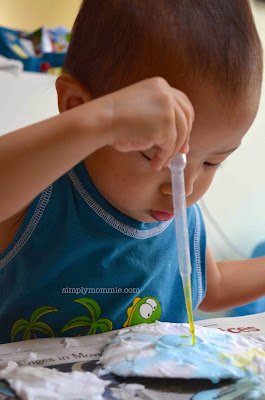
combine shaving foam and water beads for sensory play,
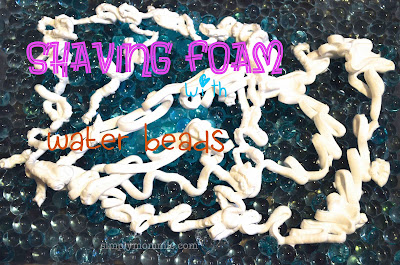
practise name writing with shaving foam,

or create a small world for play with water beads.
Or just squishing shaving foam would make a wondrous activity for kids. Really. Contact paper is intriguing because it’s sticky. So stick it down somewhere, or cut it into a shape, whatever, and give them stuff to stick on. Buys me some time to get a coffee, or even change the bedsheets. We’ve done process art with kitchen supplies,
-
Raid the pantry
No one said that you can’t use stuff in the pantry for learning. Or crafting for that matter. And it always add to the excitement and thrill when they are allowed to use unconventional items to play or craft with.
We’ve done process art with kitchen supplies,
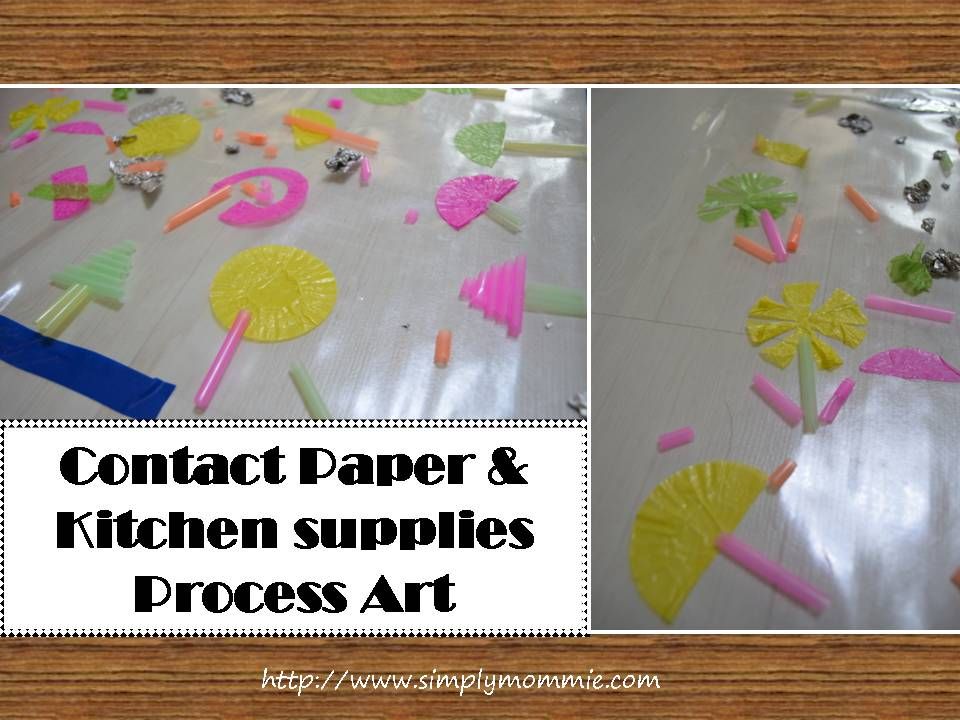 Christmas cards using kitchen supplies
Christmas cards using kitchen supplies
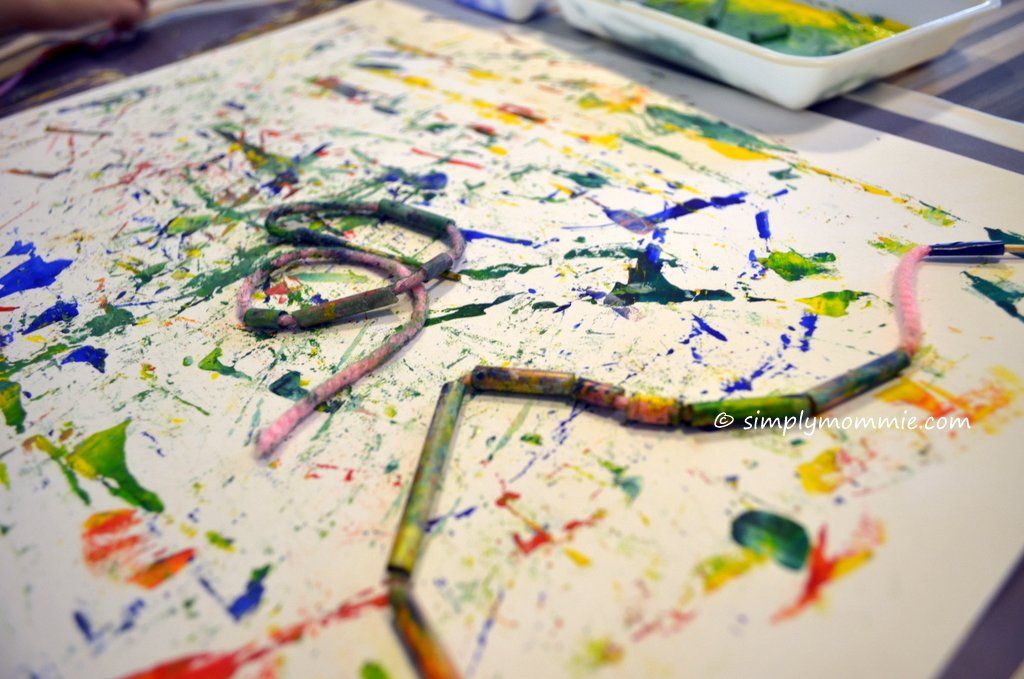 Salt and beans are also great for sensory play. When my girl was younger, she was also allowed to just play with a tub of rice/ alphabet pasta etc. so she could stay around in the kitchen while I prepped or cooked food.
Salt and beans are also great for sensory play. When my girl was younger, she was also allowed to just play with a tub of rice/ alphabet pasta etc. so she could stay around in the kitchen while I prepped or cooked food.
 Farm sensory bin put together using different types of beans:
Farm sensory bin put together using different types of beans:
Penguin small world play (using salt, glitter, small bits of aluminum foil)
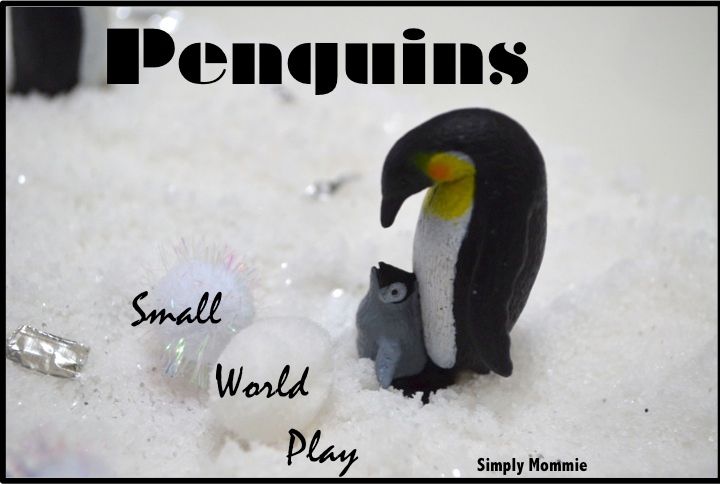 Fall-scented cloud dough play – smells so delicious too, especially if you’re a fan of Masala Chai like me 🙂
Fall-scented cloud dough play – smells so delicious too, especially if you’re a fan of Masala Chai like me 🙂
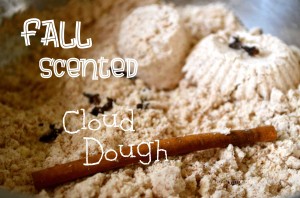
If you’re feeling a little bit more up to it that day, try making your own playdough
I’ve found that ICE is one of the kids’ favourite things to play with. So apart from playing with ice-cubes, making coloured ice and painting with them,
playing with Ice Alphabets and numbers certainly will make their day!
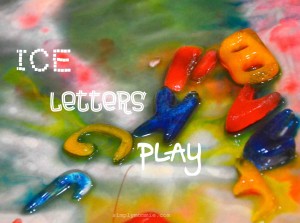 Actually if you’re really strapped for time, water + food colouring is a winning combination too. Any time. Colour mixing with pipettes just ups the fun quotient. I never used to use food colouring in the past. Now I can’t live without it.
Actually if you’re really strapped for time, water + food colouring is a winning combination too. Any time. Colour mixing with pipettes just ups the fun quotient. I never used to use food colouring in the past. Now I can’t live without it.

-
Get the kids to help in the kitchen
If you can’t beat them, join them. In this case, if you can’t get them out of your kitchen, then embrace their presence.
They can do easy tasks like:
Cutting their own carrots for lunch – makes eating carrots a breeze.

Set up: slightly cooked carrot slices with cookie cutters
mashing potatoes for mini cottage pies,
weighing items for making blueberry muffins,
making gingerbreadman cookies,
measuring and cooking rice, washing and plucking vegetables, making konnyaku jelly, wrapping wantons, cracking and beating eggs, plucking beansprouts…

-
Buy a ready curriculum to fall back on and read, read, READ.
Little boy doesn’t go to school yet and it’s gonna stay that way for awhile no matter how I’m bugged to send him to playgroup, or nursery. My girl goes to a 3-hour church kindy so in between cooking, cleaning, bringing and fetching, I try to fit some sort of learning in for both or at least my boy every day. And if I don’t succeed, at least there’s always story time to fall back on. If you don’t manage to do anything else, you should at least read to your child! For my boy, I purchased a simple curriculum to fall back on so that I need not do too much planning, and I just add on what I like and not prep those parts I don’t.

He absolutely loves reading and would read while waiting for me to clear up the bathroom after the bath
I’m currently using the Letter of the Week curriculum from Confessions of a Homeschooler and I print what I like/ top up the material with whatever I prefer.
-
Make learning a part of life
I think it’s important to fit learning into daily life and routine as kids learn best implicitly rather than through explicit teaching. Besides, little kids don’t like sitting down for prolonged periods of time so this is actually one of the best ways for their learning. And it’s great that you won’t need to beat yourself up for not being able to prepare those beautifully laminated learning aids. I’ve taught my little boy simple counting, shapes and colours by just counting objects or looking at things we see around us when we can. When reading, point out alphabets/ words, and for my girl I get her to tell the time on the clock and she orders her own food/ice-cream when we’re in the neighbourhood so she learns about money and also gains some confidence for ordering food when she goes to primary school.
So there you are! I hope you’ll enjoy some of these activities. Most take 5-15 minutes to prepare and ensure lotsa fun for the kids!
SAHM Survival Guide Part 1: Cooking & Making Meals
SAHM Survival Guide: Part 2: Cleaning & Chores
~~~~~~~~~~~~
If you enjoyed this post, please share your thoughts in the comments or share the post with your friends by clicking on the social media buttons below. Do hop over to my Facebook page where I connect with my readers and I would love to have you following me on Pinterest, Twitter and Instagram too 🙂



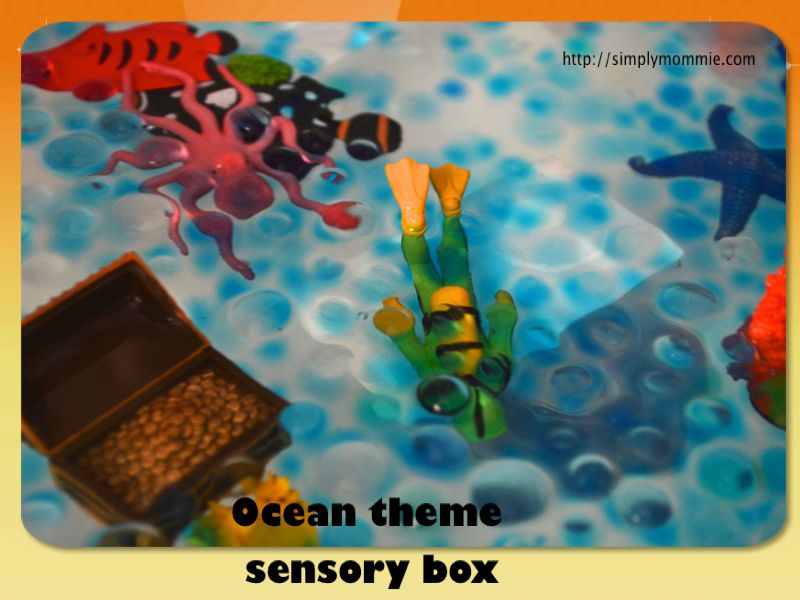


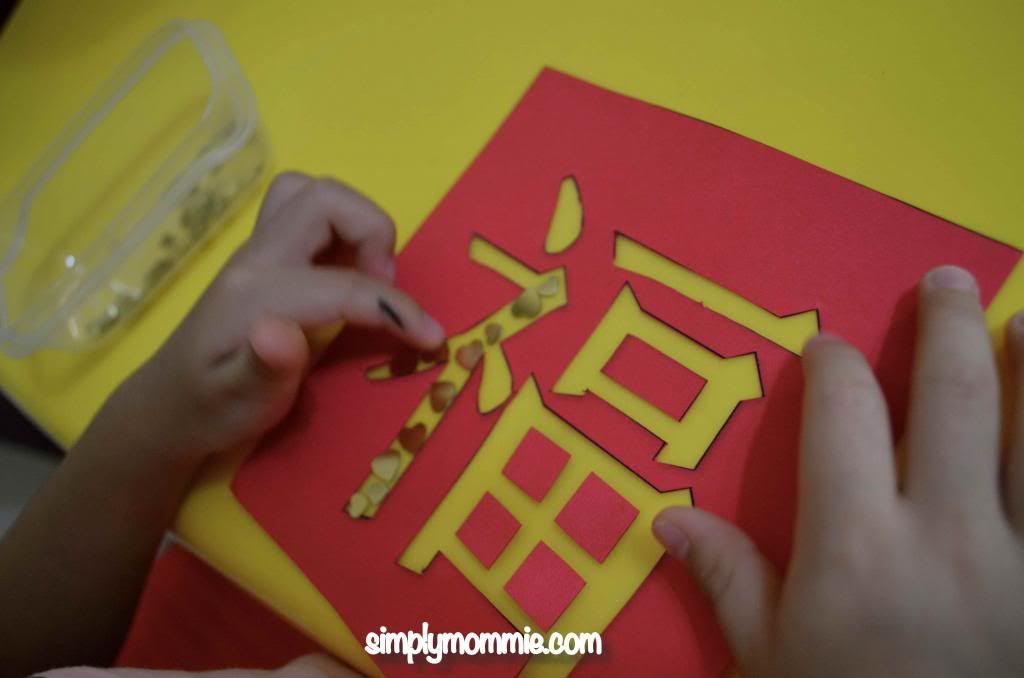
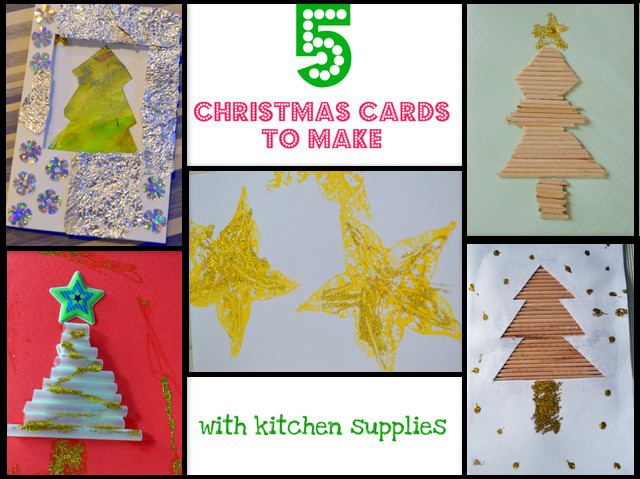


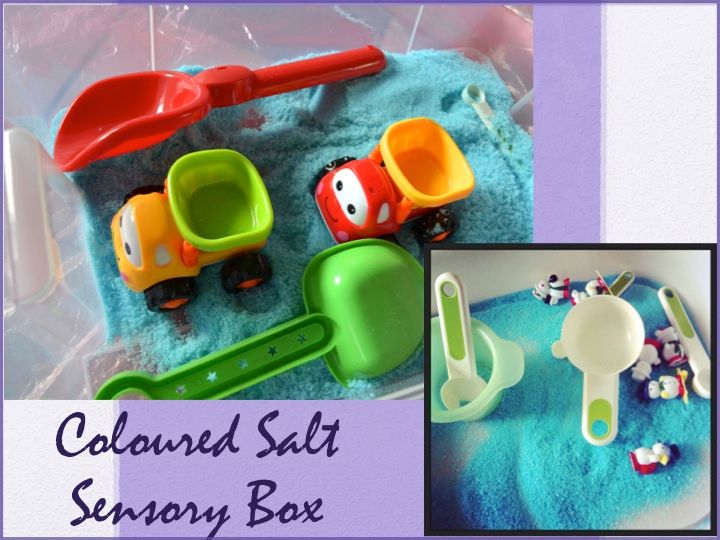



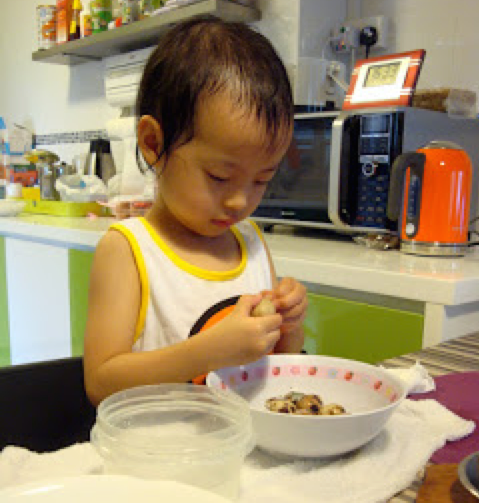

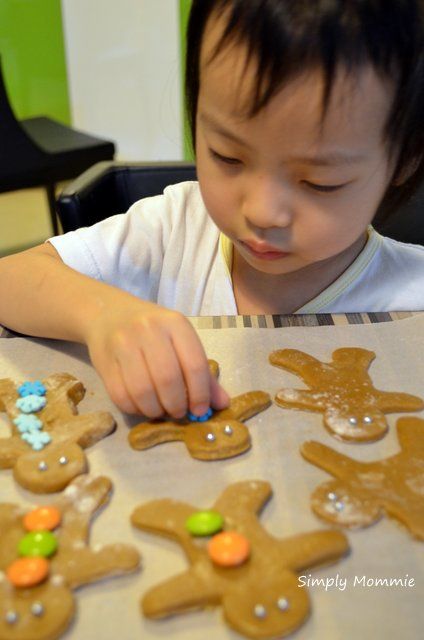







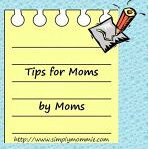


 Facebook
Facebook Twitter
Twitter Pinterest
Pinterest Instagram
Instagram